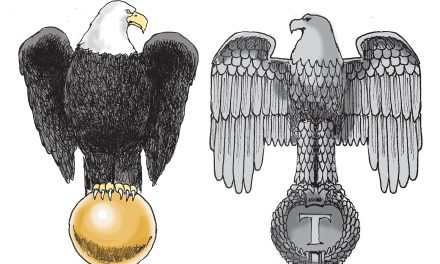There is little question that city and county governments made a serious misjudgment when they expanded the Memphis Cook Convention Center.
Because of it, we’re inclined not to join those dismissing out of hand Mayor Willie W. Herenton’s notion of considering if Memphis needs a new or dramatically renovated convention center.
Before the expansion, the Memphis convention center was a bunker. After the expansion, it became a bunker with a performing arts center stuck on it.
Uncompetitive
To complement its fortress appearance or because of it, the convention center is drab and dreary and predestines Memphis to remain low on the ladder of top convention cities.
In a world characterized by stylish, airy, light-filled convention centers, Memphis Cook Convention Center is a throwback to another age. If you doubt it, just check out the photographs on this post. They show Pittsburgh’s convention center, and while it’s probably one of the best of its kind, it does in fact reflect the more appealing architecture prevalent in today’s convention markets.
The Memphis convention center expansion – setting aside for the moment the fact that it cost twice its original projection and took twice as long to complete – was the architectural equivalent of putting lipstick on a pig (no political commentary intended). The expansion did little to offset the gloomy interior and the gloomier meeting experience in the convention center, and in truth, the Cannon Center for the Performing Arts – as much of an upgrade as it was from the old auditorium – is equally meager when compared to similar halls in other cities.
Taking A New Look
As a result, any new convention center would need to be accompanied by visitor-generated tax sources – not property taxes – that could pay the cost of a $300 million facility – a moderately-priced center – that would cost about $18 million a year for two or three decades. The debt service payments for a convention center costing the same as Nashville’s proposed convention center would cost twice that.
Despite predictions to the contrary, City Hall did in fact avoid the use of any property taxes or general fund money at The Pyramid, so there’s little reason to dismiss the pledge that the same can be done with a new convention center. Of course, there’s always political volatility with the idea of a new public facility costing as much as a convention center, because many members of the public believe that the funds should be spent on schools, or parks, or law enforcement.
It just can’t happen. The regular tax sources used to pay for the old convention center and the convention center expansion can’t be used for any of these other purposes. They are set aside to fund convention centers or other “public assembly facilities.”
No Downside
Actually, on this one, we agree with Mayor Herenton that there’s no downside to considering whether a new convention center is needed and what impact it could create.
He has instructed the special convention center committee considering this issue to evaluate it carefully and thoroughly. And best of all, he has suggested in media reports that before his special convention center committee can even consider what could be built, it needs to determine where Memphis stands as a destination city for national – not just regional – conventions.
From all evidence and reports from the committee members, Mayor Herenton is encouraging this kind of serious, thoughtful analysis and evaluation. It’s also worth remembering that the idea of a new convention center did not originate in City Hall, but with the tourism industry and the Memphis Fast Forward plan.
Fast Forward
When tourism became one of the major priorities for the new economic development plan, it only made sense that there should be an analysis of our institutional anchors – such as a convention center – to see what could be done to grow the $3 billion tourism industry in Memphis.
For years, the tourism industry has lobbied local government officials for the need for a more dramatic, ambitious plan for the future, and inevitably, this discussion turned to the possibility of a new convention center. In fairness to Mayor Herenton, it seems that sinister motives are often attached by some people to any suggestion that he makes, even when he wasn’t the first person to make it, as in this case.
In addition, it’s more than likely that if the committee made the case for a new convention center, found the funding for it, and then recommended its location, the Herenton Administration would no longer be in City Hall.
We say all this to say this: there is a broad-based group of people – some from tourism, some not; some who’ve spoken out for a new convention center, some not – looking into the convention center question, and there’s really no reason that we shouldn’t let the process run and see what they have to say.





